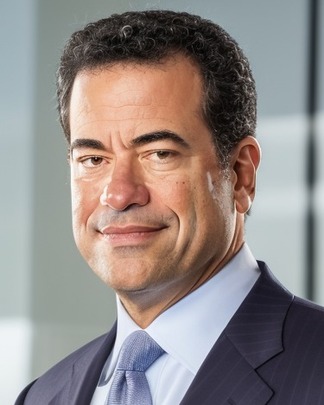
Danny Moses
Danny Moses is a seasoned investor and the Founder of Moses Ventures, widely recognized for his role as Head Trader under Steve Eisman at FrontPoint Partners. He rose to prominence through the events dramatized in the Oscar-nominated film The Big Short (2015), which showcased how Moses and his colleagues accurately predicted and profited from the collapse of the U.S. housing market and the 2007–2008 credit bubble. Today, through Moses Ventures, he invests in and advises private companies while frequently appearing in financial media as a respected voice on market risks, including warnings about overvalued equities, speculative meme stocks, and broader systemic vulnerabilities. Beyond investing, Moses co-hosts the On The Tape podcast alongside Dan Nathan and Guy Adami, where he shares insights on markets, policy, and financial trends.
Danny Moses Professional Experience / Academic History
Professional Experience
-
Founder
Academic History
-
Master of Business Administration
-
Bachelor of Business Administration
WALL STREET CAREER
Danny Moses is a veteran investor and advisor best known for playing a central role in what has been called one of the greatest trades in Wall Street history.
As the former Head Trader at FrontPoint Partners under Steve Eisman, Moses gained public recognition through The Big Short (book and film), which chronicled how he and his colleagues correctly identified and profited from the housing market collapse leading up to the 2008 financial crisis.
Over the course of his Wall Street career, he has held diverse roles including municipal bond analyst, institutional equities broker and trader, and hedge fund manager.
He began his career in 1991 as a municipal bond analyst at MBIA before moving on to serve as an institutional broker at firms such as Oppenheimer.
MARKET CALLS
Today, Moses is widely regarded as a sharp market commentator, frequently warning about macroeconomic risks, including signs of a potential U.S. recession, equity overvaluation, and distortions in market liquidity.
He has been especially outspoken about speculative “meme stocks” and other high-risk areas of the market.
Among his more notable positions, Moses has taken a bearish stance on Tesla, arguing that the company’s valuation is driven more by future promises—such as autonomy and robotaxi development—than by current fundamentals.